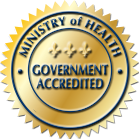People battling Ritalin misuse have hope at Sobriety.ca Foundation. We offer high quality treatment plans, individually catered to everyone. Our treatment plans consist of an integrated approach grounded in evidence. We include our residents in the decision-making process of their treatment plan and listen to everyone’s needs. It is our goal to lead you towards a Ritalin-free life. Some of the programs available at Sobriety.ca Foundation are:
- Detox from Ritalin
- Treatment for Ritalin in a residential setting
- Ritalin intervention
- Rehabilitation from Ritalin
- SMART recovery
What is Ritalin?
Ritalin is a psychostimulant used to treat attention deficit hyperactivity disorder and narcolepsy. It provides patients with modest cognitive improvements and memory enhancement. Ritalin was first synthesized in 1944 in Basel, Switzerland and went by the chemical name methylphenidate. It reached the North American market not long after its creation and became a popular drug prescribed by physicians in the 1960s. Production of the drug and its prescription really took off in the 90s as ADHD became more understood and accepted within the medical community.
What is Ritalin Addiction?
Ritalin is classified as a drug with a high abuse potential in the United States by the Drug Enforcement Administration (DEA). Typically, addiction occurs when someone begins taking the drug for non-medicinal purposes. In other words, they take the drug to get high or to increase their alertness and stay awake. This latter is most commonly found in university students. Addiction to Ritalin is contingent on the context in which it is taken. Individuals who take Ritalin to treat attention disorders or narcolepsy typically are not considered addicted to Ritalin. However, they may misuse the drug. In this case, individuals may take larger doses of the drug than prescribed in order to get high. This abuse potential is possible in individuals who are not prescribed Ritalin at all. Like other drugs, users of Ritalin may experience tolerance and withdrawal which further enforces their addiction or drug abuse. For example, someone who builds a tolerance to Ritalin will require more of the same drug to achieve desired effects. Likewise, someone experiencing Ritalin withdrawal will seek out more of the drug to avoid the adverse symptoms of coming off the drug. The desired high of Ritalin is strong in some circumstances. Snorting the drug can produce the same effects euphoric effects as cocaine. Therefore, Ritalin abuse is like that of cocaine.
Short-Term Effects of Ritalin
Short-term effects of Ritalin may include irritation, dizziness, fatigue, depression, dilation of pupils, headaches, insomnia, impaired vision, extreme sweats, reduction in appetite, increased heart rate, and stomach pain.
Long-Term Effects of Ritalin
Those who abuse Ritalin over the long-term may experience paranoia, auditory hallucinations, repetitive violent behaviour, OCD-like behaviours, and delusions of grandeur. Lastly, long-term users of Ritalin are at risk for overdose.
Ritalin Pharmacology
Methylphenidate, the active ingredient of Ritalin, is a stimulant of the central nervous system. It works by inhibiting the recycling (aka: reuptake) of both the neurotransmitters dopamine and norepinephrine. In other words, Ritalin prevents the brain from being able to clear itself of dopamine and norepinephrine. In turn, this causes an increase of these neurotransmitters in the brain and therefore the likelihood that they will bind to receptors that will carry out specific actions. Generally, those with ADHD are prescribed Ritalin because their baseline levels of dopamine and norepinephrine are lower than normal. Their brain is in what is called a “fatigued state.” Consumption of Ritalin restores their brain to an “alert state” which is what most ‘normal’ brains are at. When a naturally occurring “alert state” brain takes Ritalin outside of a prescription, it puts it into what is known as a “stress state.” This is what produces feelings of euphoria, like that of cocaine.


